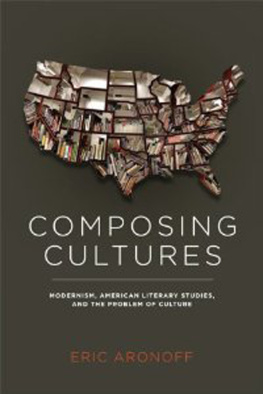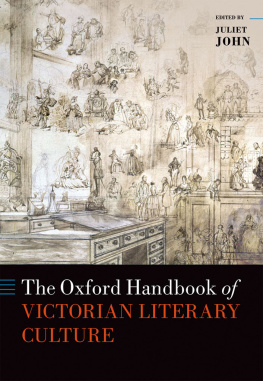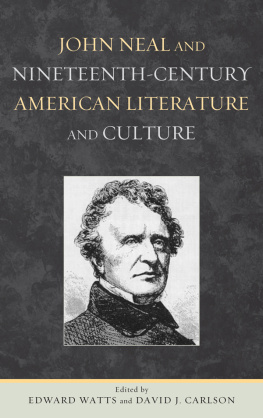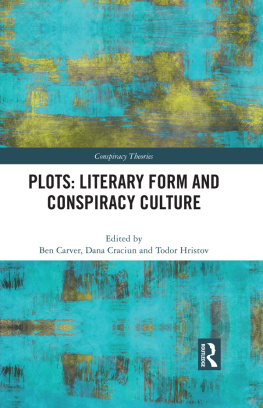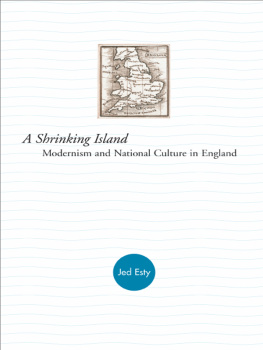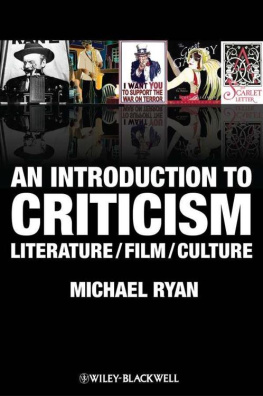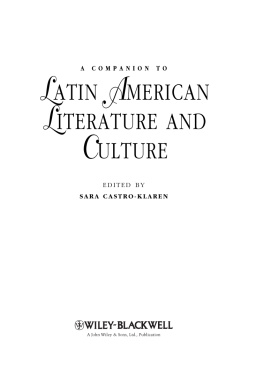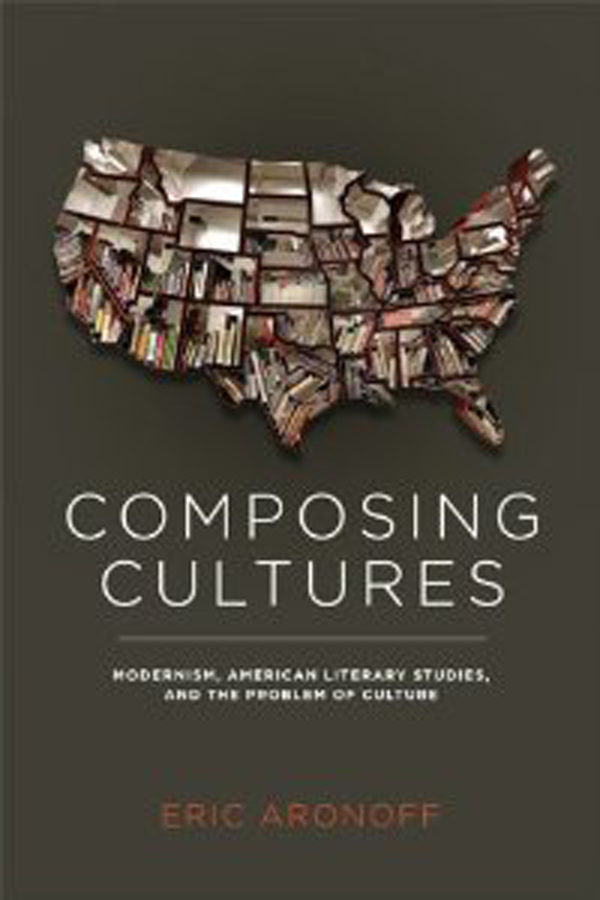Cultural Frames, Framing Culture
Robert Newman , Editor
Composing Cultures
Modernism, American Literary Studies, and the Problem of Culture
Eric Aronoff
University of Virginia Press
Charlottesville and London
University of Virginia Press
2013 by the Rector and Visitors of the University of Virginia
All rights reserved
Printed in the United States of America on acid-free paper
First published 2013
Library of Congress Cataloging-in-publication Data
Aronoff, Eric.
Composing cultures : modernism, American literary studies, and the problem of culture / Eric Aronoff.
pages cm. (Cultural Frames, Framing Culture)
Includes bibliographical references and index.
ISBN 978-0-8139-3483-9 (cloth : alk.)
ISBN 978-0-8139-3484-6 (pbk. : alk.)
ISBN 978-0-8139-3485-3 (e-book)
1. American literatureHistory and criticism. 2. Popular culture in literature. 3. Literature and societyUnited States. 4. Culture in literature. 5. Modernism (Literature)United States. 6. Anthropology in literature. I. Title.
PS169.P63A76 2013
810.93552dc23
2013004998
A book in the American Literatures Initiative (ALI), a collaborative publishing project of NYU Press, Fordham University Press, Rutgers University Press, Temple University Press, and the University of Virginia Press. The Initiative is supported by The Andrew W. Mellon Foundation. For more information, please visit www.americanliteratures.org.
For Yael
You make my life a heaven
Contents
Over the course of this projects development, I have benefited from the conversation, advice, and support of many colleagues and friends. I would particularly like to thank Eduardo Cadava, Brad Evans, Scott Herring, Myra Jehlen, Walter Johnston, Jack Kerkering, Walter Benn Michaels, Steve Rachman, Guy Reynolds, Eric Santner, Leif Sorensen, Michael Warner, and Glenn Wilmott, each of whom in their own ways contributed to the substance and form of this book. I would especially like to thank Marc Manganaro, who has helped me work out these ideas since their inception, and who has been a mentor and friend at every stage of my academic career. I would also like to thank Steve Esquith, Anita Skeen, David Sheridan, and my colleagues in the Residential College in the Arts and Humanities at Michigan State University for making possible the vibrant, creative intellectual community where my passion for teaching and research could be brought together, and this book brought to fruition. Thanks also to Lauren Hall and Linda Benson for their help editing the manuscript.
Portions of chapter 2 previously appeared in The Kingdom of Culture: Culture, Ethnology and the Feeling of Empire in The Song of the Lark in Willa Cathers The Song of the Lark, ed. Debra Cumberland (New York: Rodopi Press, 2010), 12749, reprinted with permission of Rodopi Press; and in Possessing Culture: Willa Cathers Aesthetic of Culture in The Song of the Lark and The Professors House, Genre 43 (Spring/Summer 2010): 6190. Portions of chapter 3 first appeared in Cultures, Canons, and Cetology: Modernist Anthropology and the Form of Culture in Lewis Mumfords Herman Melville, ESQ: A Journal of the American Renaissance 58, no. 2 (Summer 2012): 185217, and are reprinted with permission from Washington State University. Portions of chapters 1, 2, and 4 appeared in Anthropologist, Indians, and New Critics: Culture and/as Poetic Form in Regional Modernism, MFS: Modern Fiction Studies 55, no. 1 (Spring 2009): 92118, and are reprinted with permission from Johns Hopkins University Press.
I couldnt have done this without my family. Thank you to my father and mother, Jan and Marika Wallach, who always encouraged me to follow my interests; and to Mike and Rita Aronoff for being both family and great friends. My children, Maya and Aidan, have grown along with this book; thank you, guys, for all your patience, and the joy you have brought to my life. (Yes, daddys done with the book!) And most of all, to Yael, my soul mate: you make everything else possible; you make life more joyous, fulfilling, and fun than I ever imagined it could be.
In their recent survey of the state of literary studies, William B. Warner and Clifford Siskin argue that the time has comeas their title proclaimsfor stopping cultural studies. For Warner and Siskin, the reason is straightforward: culture is the problem with cultural studies (104, emphasis in original). Before cultural studies, they claim, literary study struggled under the limitations of literary history, author-centered study and various species of formalism (genre theory, close reading, rhetorical analysis) (94). With the rise and triumph of cultural studies from the 1980s through the early twenty-first century, however, literary critics learned to inscribe literature into the amorphous but expansive term culture. Embedding works of literature within discourses of knowledge and the effects of power, cultural studies made literature (and therefore literary studies) politically relevant (94). But while they admit this movement gave literary critics valuable new ways of looking at literature through the lenses of gender, race, and class, Warner and Siskin argue that the strategic vagueness of the term and concept of culture is the problem (95): it is a Teflon category in which we totalize all the activities of every people, period, and group, and this totalizing indifference leaves us floundering (104). If, as they claim, culture is equally and indifferently everything, then it tells us nothing.
In lamenting the problem of culture, Warner and Siskin engage in what has become a ritual jeremiad from within anthropology as well as within literary studies in the past twenty years, as culture has become ubiquitous in both literary studies and everyday language. On the one hand, culture is everywhere, used to explain what people do or do not do, or what they can or cannot do. Corporate culture gets the credit for success or is the culprit for misbehavior.
What it means to have (a) culture is likewise hard to define. Culture includes everything a designated group does; everyone is part of a culture. But that omnipresence is coupled with fragility, as groups are said to lose their culture in the face of assimilation or the forces of globalization. At the same time, culture remains closely associated with particular kinds of artistic and intellectual activities (the New York Times, for example, features a series called the Cultured Traveler). Thus everyone possesses (or is possessed by) a culture; at the same time, some groups or individuals seem to possess (or be possessed by) culture more than others.
Simultaneously, despite (or perhaps because of) its ubiquity, attempts to define culture founder on several overlapping, contesting, and contradictory traditions of thinking about what counts as culture. As Warner and Siskin note, cultural studies scholars themselves have difficulty in trying toand indeed seem to see no urgency toidentify their object of analysis: as one landmark anthology in the field put it, Cultural studies is an interdisciplinary, transdisciplinary, and sometimes counterdisciplinary field that simultaneously works between both a broad, anthropological and a more narrowly humanist conception of culture.
Interestingly, while literary critics like Siskin and Warner have only lately begun to advocate a turn from culture, the term has been in crises within anthropologythe discipline for which it has been the defining conceptual termfor several decades, coinciding nicely with its rise in stock within literary studies. In what critics like Susan Hegeman have identified as a veritable writing against culture genre, anthropologists like James Clifford, George Marcus, Renato Rosaldo, Lila Abu-Lughod, and others have argued that the anthropological version of culture is deeply imbricated in the structures of racism and imperialism, which it, in many ways, was historically conceived to combat.

